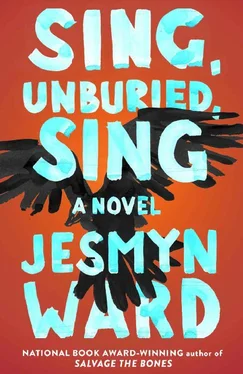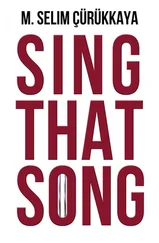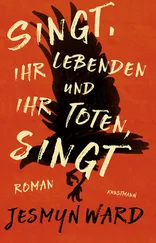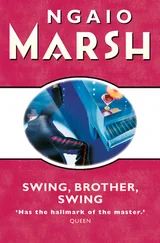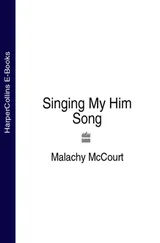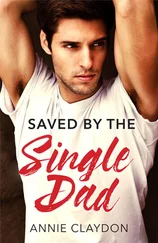“Yes, Mam,” I said. I didn’t. Mam let me go and I wandered out to the yard and found Pop slopping the hogs. “Will you tell me again?” I asked him. “What happened, Pop? When you went to jail?” And he paused, a hitch in the smooth arc of the bucket, and he told me his story.
That twelve-year-old boy I told you about? Richie? They put him on the long line. From sunup to sundown we was out there in them fields, hoeing and picking and planting and pulling. A man get to a point like that, he can’t think. Just feel. Feel like he want to stop moving. Feel his stomach burn and know he want to eat. Feel his head packed full of cotton and know he want to sleep. Feel his throat close and fire run up his arms and legs, his heart beat out his chest, and know he want to run. But wasn’t no running. We was gunmen, under the gun of them damn trusty shooters. That was our whole world: the long line. Men strung out across the fields, the trusty shooters stalking the edge, the driver on his mule, the caller yelling to the sun, throwing his working song out. Like a fishing net. Us caught and struggling. Once, my grandmama told me a story about her great-grandmama. She’d come across the ocean, been kidnapped and sold. Said her great-grandmama told her that in her village, they ate fear. Said it turned the food to sand in they mouth. Said everyone knew about the death march to the coast, that word had come down about the ships, about how they packed men and women into them. Some heard it was even worse for those who sailed off, sunk into the far. Because that’s what it looked like when the ship crossed the horizon: like the ship sailed off and sunk, bit by bit, into the water. Her grandmama said they never went out at night, and even in the day, they stayed in the shadows of they houses. But still, they came for her. Kidnapped her from her home in the middle of the day. Brought her here, and she learned the boats didn’t sink to some watery place, sailed by white ghosts. She learned that bad things happened on that ship, all the way until it docked. That her skin grew around the chains. That her mouth shaped to the muzzle. That she was made into an animal under the hot, bright sky, the same sky the rest of her family was under, somewhere far aways, in another world. I knew what that was, to be made a animal. Until that boy came out on the line, until I found myself thinking again. Worrying about him. Looking out the corner of my eye at him lagging crooked like a ant that’s lost scent.
* * *
It’s not until an hour later, when I figure the shirt’s as dry as it’s going to get in the humid-close car, that I see it. A small bag, so small two could fit in the palm of my hand, secreted in the middle of my bundle of clothes. Like the dot of blood the size of a pin at the center of the yolk in an egg: life that would have been life, but not. It’s smooth and warm, soft to my touch. Feels like leather, and it’s tied together with a sinewy leather strip. I glance up. Misty’s dozing in the front seat, her head falling forward and jerking upright only to list forward again. Leonie’s got both hands on the wheel, her fingers tapping to the music on the radio; we’re listening to country, which I hate. We’ve been in the car a little over two hours, so we lost the Black station from the coast at least an hour ago. Leonie smooths the hair at the nape of her neck with one hand, as if she could caress it into flatness, and then she taps again. I hunch over my lap, turning toward the door, making a small room with my body, a screen. I pull the strip. The knot gives, and I tease it open.
I find a white feather smaller than my pinkie finger, tipped with blue and a slash of black. Something that at first looks like a small chip of white candy, but when I pick it up and hold it close to my face, it’s some kind of animal tooth, lined with black in the chewing grooves, sharp like a canine. Whatever animal it came from knew blood, knew how to tear knotty muscle. Then I see a small, gray river rock, a little perfect dome. I swirl my pointer finger into the dark of the sack, searching, and pull out a piece of paper, rolled thin as a fingernail. In slanted, shaky script, in blue ink: Keep this close .
It’s either Pop’s or Mam’s handwriting. I know this because I’ve seen it all my life, on Catholic wall calendars, on the inside of a kitchen cabinet next to the refrigerator where they tack a list of important names and phone numbers, starting with Leonie’s. On permission slips and report cards when Leonie was too busy or absent to sign. And because Mam hasn’t left her bed in weeks and can’t hold a pen, I know it’s Pop who wrote the note, Pop who gathered the feather, the tooth, the rock, who sewed the leather pouch, who says to me: Keep this close .
My knees rub the seat in front of me. I can’t help it; I’ve gotten tall enough that the backseat of Leonie’s hatchback is close and tight. Leonie glances up.
“Stop kicking the back of my seat.”
I hold my palms, a warm open bowl, over the things that Pop has given me, which are in a tiny pile in my lap.
“I didn’t mean to,” I say.
“You should have said sorry,” Leonie says.
I wonder if Pop ever did something like this for her when she made this trip before. If he snuck out in the morning when Leonie was sleeping, 9 a.m. or 10 a.m., and secreted something in her car, some little collection of things he thought might be able to keep her safe, to watch for her when he couldn’t, to protect her on her trips to north Mississippi. Some of my friends at school have people living up there, in Clarksdale or outside of Greenwood. What they say: You think it’s bad down here . What they do: frown. What they mean: Up there? In the Delta? It’s worse.
Up ahead, the trees by the side of the road begin to thin, and there are suddenly billboards. A picture of a new baby in the womb: a red-yellow tadpole, skin and blood so thin the light shines through it like a gummy candy. Protect Life , the sign says. I put the feather, the rock, and the tooth in the bag. Roll Pop’s note so thin it could be a straw for a mouse, and put it in the bag before tying it shut and putting it into the small square pocket sewn into the waistband of my basketball shorts. Leonie is not looking at me anymore.
“Sorry,” I say.
She grunts.
I think I know what my friends mean when they talk about north Mississippi.
* * *
Pop’s told me some parts of Richie’s story over and over again. I’ve heard the beginning at least too many times to count. There are parts in the middle, about the outlaw hero Kinnie Wagner and the evil Hogjaw, that I’ve only heard twice. I ain’t never heard the end. Sometimes, I’d try to write them down, but they were just bad poems, limping down the page: Training a horse . The next line. Cut with the knees . Sometimes I got fed up with Pop. At first, he told me the stories while we were awake at night in the living room. But after some months, he always seemed to tell me part of his Richie story when we were doing something else: eating red beans and rice, picking our teeth with toothpicks on the porch after lunch, sitting in front of the television in the living room watching westerns in the afternoon, when Pop would interrupt the cowboy on the screen to say this about Parchman: It was murder. Mass murder. When Pop told me about the small pouch he kept tied to one of his belt loops, it was cold outside, and he was splitting logs for the woodstove that heated the living room. We were out of gas for the weekend. Mam had all the covers in the house on her, crocheted blankets and quilts and flat and fitted sheets, and still she moaned: My bones. Her hands tucked up under her neck, wringing one against the other, the skin raspy and chafed white, even though I lotioned them every hour. It’s so cold. Her teeth rattling like dice in her mouth.
Читать дальше
